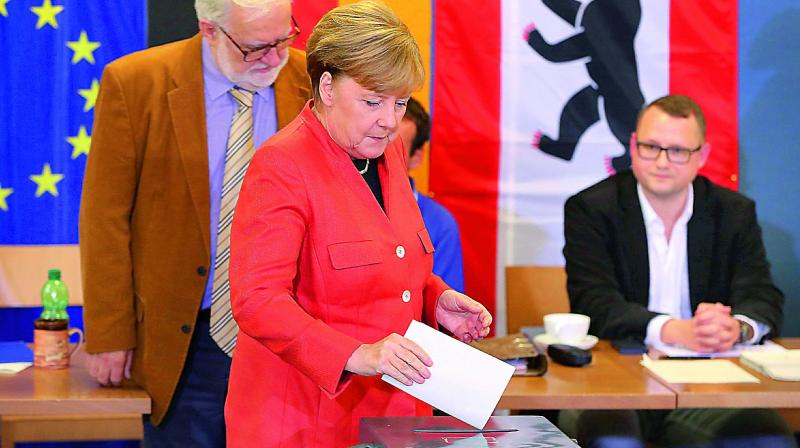Rightward tilt in Germany

Women have often attained power while having to fight misogyny and other barriers. Angela Merkel is someone who has proved durable: she is poised to build on her 12 years as German Chancellor after another victory in her nation’s complex, quasi proportional representation system. Often called “leader of the free world” after Donald Trump’s election as US President, she heads into a challenging fourth term when domestic issues have got more complicated. Her own authority is somewhat diminished with her alliance losing around eight per cent of its voteshare. This is, in fact, the worst performance by the conservatives under her leadership.
AfD (Alternative for Deutschland), the first far-right party to enter the Bundestag since 1961, is likely to get over 80 seats from its 13 per cent vote. It will also be the third largest party, after the ruling CDU/CSU and SPD. A weakened SPD is likely to opt out of the alliance and sit in Opposition, adding to Ms Merkel’s problems in striking a new alliance with FDP and the Greens, in what is being derisively called the “Jamaica coalition”.
Significantly, immigration was the single biggest issue in the election after Ms Merkel’s 2015 decision to allow around 1.3 million refugees to enter Germany in a much-lauded humanitarian gesture. AfD, an anti-immigration far-right party along the lines of those gaining ground across Western Europe, is determined to test the laws by which refugees were allowed in. Besides challenges at home, Ms Merkel must hold together the European Union and sustain Germany’s economic stability, which has contributed the most to her charisma.

